The National Cancer Institute (NCI) coordinates the United States National Cancer Program and is part of the National Institutes of Health (NIH), which is one of eleven agencies that are part of the U.S. Department of Health and Human Services. The NCI conducts and supports research, training, health information dissemination, and other activities related to the causes, prevention, diagnosis, and treatment of cancer; the supportive care of cancer patients and their families; and cancer survivorship.
The Johns Hopkins University School of Nursing (JHUSON) is the nursing school of Johns Hopkins University in Baltimore, Maryland. Established in 1889, it is one of the nation's oldest schools for nursing education. It is continuously rated as the top nursing program in the US per U.S. News & World Report.

Gynecologic cancer disparities in the United States refer to differences in incidence, prevalence, and mortality from gynecologic cancers between population groups. The five main types of gynecologic cancer include cervical cancer, ovarian cancer, endometrial cancer, vaginal cancer, and vulvar cancer. For patients with these and other gynecologic malignancies within the United States, disparities across the care continuum by socioeconomic status and racial/ethnic background have been previously identified and studied. The causes behind these disparities are multifaceted and a complex interplay of systemic differences in health as well as individual patient factors such as cultural, educational, and economic barriers.
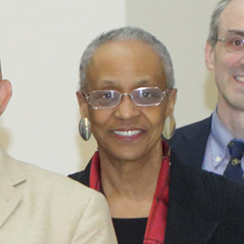
Shiriki K. Kumanyika is an Emeritus Professor of Biostatistics and Epidemiology at the Perelman School of Medicine at the University of Pennsylvania and co-chair of the International Association for the Study of Obesity International Obesity Task Force. She has previously served as Associate Dean for Disease Prevention and was founding director of the University of Pennsylvania Master of Public Health. She chairs the African American Collaborative Obesity Research Network. She is the former president of the American Public Health Association.
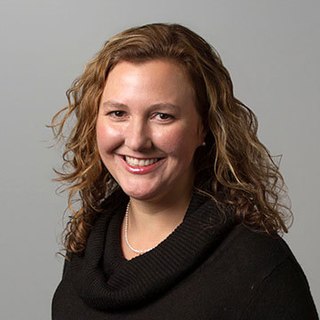
Gretchen L. Gierach is an American epidemiologist and women's health researcher. She is the Deputy Chief of the Integrative Tumor Epidemiology Branch in the National Cancer Institute.
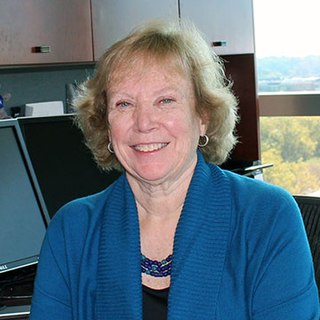
Louise A. Brinton is an American epidemiologist. She was a senior investigator, Chief of the Hormonal and Reproductive Epidemiology Branch, and the first Scientific Advisor for International Activities of the National Cancer Institute Division of Cancer Epidemiology and Genetics.

Elizabeth "Lisa" Khaykin Cahoon is a Georgian-born American epidemiologist researching cancer and precancer risks conferred by environmental sources of radiation exposure. She is a Stadtman investigator at the National Cancer Institute.

Worta McCaskill-Stevens is an American physician-scientist and medical oncologist specialized in cancer disparities research, management of comorbidities within clinical trials, and molecular research for cancer prevention interventions. She is chief of the community oncology and prevention trials research group at the National Cancer Institute.

Xiaohong Rose Yang is an American biomedical scientist researching the genetics of dysplastic nevus syndrome and chordoma, and etiologic heterogeneity of breast cancer. She is a senior investigator at the National Cancer Institute. Yang leads breast cancer studies in mainland China, Hong Kong, and Malaysia.
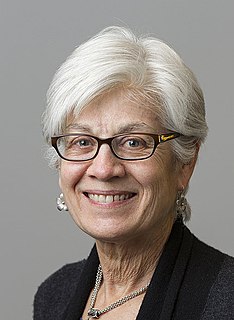
Ruth A. Kleinerman is an American epidemiologist specialized in retinoblastoma. Kleinerman worked at the National Cancer Institute (NCI) from 1979 to 2019 where she served as a staff scientist and deputy chief of the Radiation Epidemiology Branch.
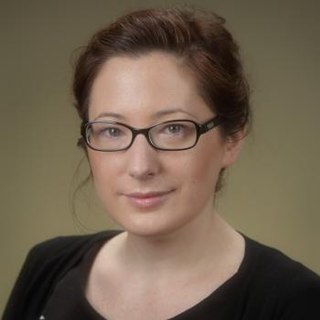
Bríd M. Ryan is an Irish biomedical scientist and cancer researcher. She was an investigator at the National Cancer Institute from 2013 to 2021.
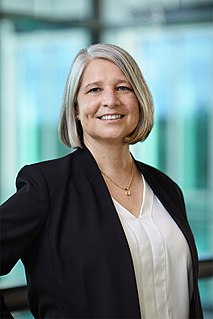
Katrina A. Blouke Goddard is an American genetic epidemiologist and biostatistician specializing in public health genomics and the translation of genomic applications into clinical practice. Goddard is the director of the division of cancer control and population sciences (DCCPS) at the National Cancer Institute (NCI). She was previously the distinguished investigator and director of translational and applied genomics at the Kaiser Permanente Center for Health Research and a faculty member at Case Western Reserve University.

Sharon A. Savage is an American pediatric hematologist/oncologist. She is the clinical director of the National Cancer Institute's Division of Cancer Epidemiology and Genetics.

Rachael Z. Stolzenberg-Solomon is an American epidemiologist and dietitian. She is a senior investigator and head of the metabolic epidemiology branch at the National Cancer Institute.

Hannah P. Yang is an American cancer epidemiologist who is a staff scientist and associate director of scientific operations in the National Cancer Institute's division of cancer epidemiology and genetics.

Mia M. Gaudet is an American molecular epidemiologist pectized in cancer prevention research and managing cohort studies. She is a senior scientist in the division of cancer epidemiology and genetics at the National Cancer Institute.
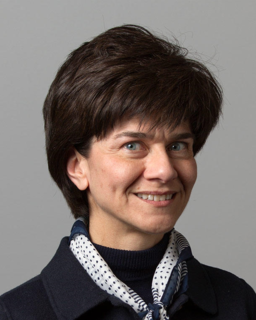
Maria Teresa Landi is an Italian epidemiologist and oncologist who researches genetic and environmental determinants of lung cancer and melanoma. At the National Cancer Institute, she is a senior investigator in the integrative tumor epidemiology branch and a senior advisor for genomic epidemiology. Landi is an associate professor of epidemiology at the Johns Hopkins Bloomberg School of Public Health.

Stephanie Joan Weinstein is an American nutritionist and cancer epidemiologist who is a staff scientist in the metabolic epidemiology branch at the National Cancer Institute. She researches diet and cancer associations with a with a focus on vitamin D, vitamin E, and one-carbon metabolism. Weinstein was formerly an environmental toxicologist at a consulting firm.
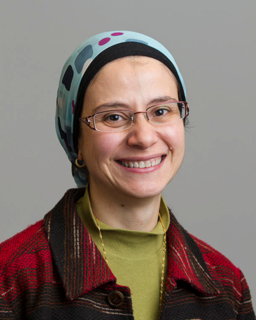
Shahinaz Mohamed Aly Gadalla is a physician-scientist and cancer epidemiologist who researches cancer biomarkers and hematopoietic stem cell transplantation. She is a senior investigator in the clinical genetics branch at the National Cancer Institute.

Julia C. Gage is an American cancer epidemiologist who researches cervical screening and the human papillomavirus infection. She is a staff scientist in the clinical genetics branch at the National Cancer Institute.


















